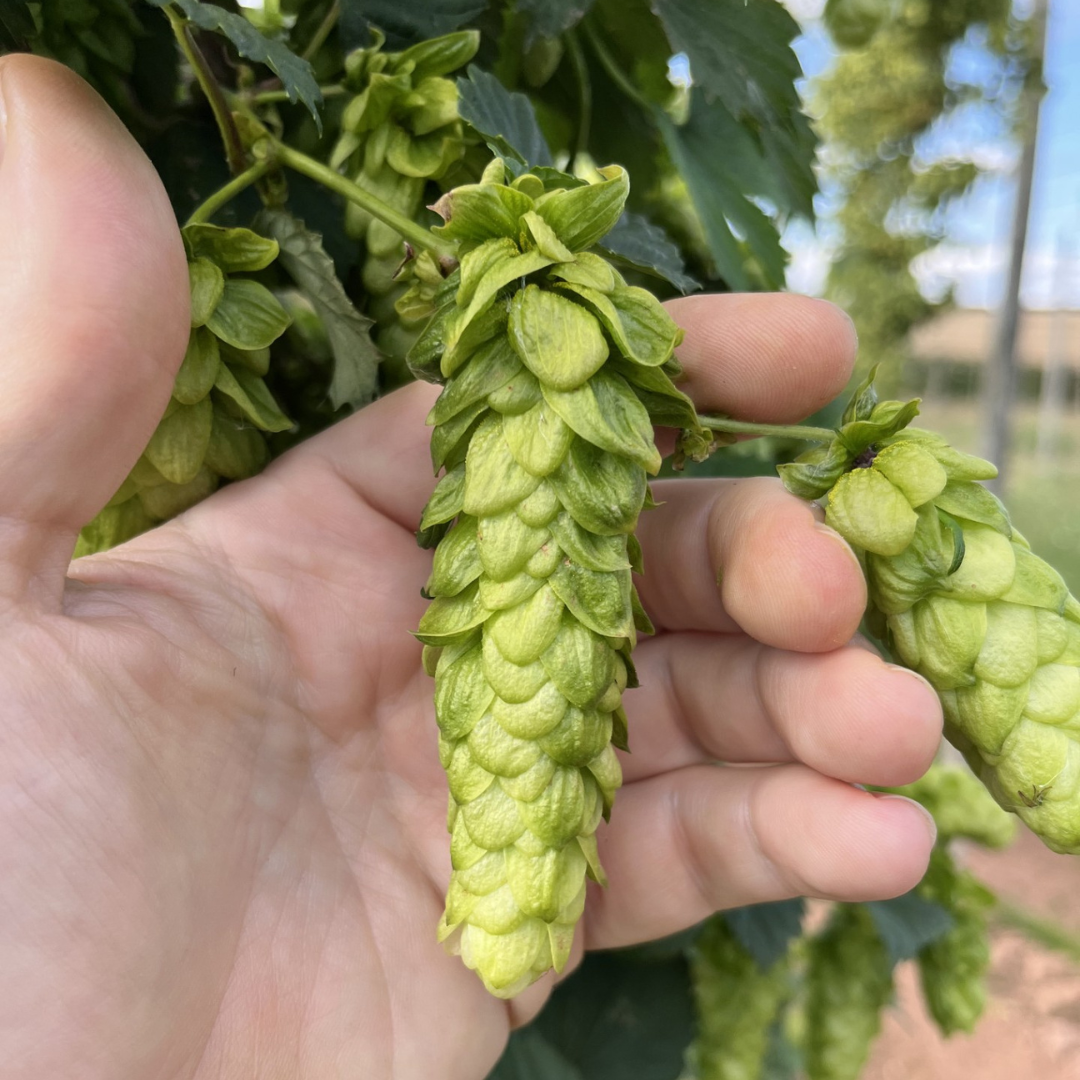New research projects aim to inspire the sustainable evolution of hop farming

Author: Communications Team
Date: 31 10 2024 09:00
- Asahi joins pioneering collaboration to support crucial ingredient in beer
- Research aims to explore new agriculture innovations and biodiversity methods
Asahi UK have teamed up with the Royal Agricultural University (RAU) and the University of Warwick in a bid to boost a lesser known but crucial British crop - Hops! Working in partnership with the British Hop Association, Charles Faram and the Worshipful Company of Brewers, the companies will help fun two pioneering PhD research projects exploring new sustainable innovations for British hop farming.

Hops are a vital ingredient in all beers, providing the bitterness and complex flavours beer-lovers expect. Climate change and the prevalence of crop disease has meant that hop production in the UK has declined substantially since its heyday in the 1800s when it is believed there were almost 3,000 hop growers, and more than 77,000 acres of hops, in the UK. Now there are just 45 hop growers, covering only 2,000 acres, and the remaining farms are under increasing pressure from climate change.
In a recent climate-related risk analysis of its business, Asahi UK, brewer of British beer brands including Fuller’s, Dark Star, and Meantime, found that hops were one of the highest areas of risk due to the adverse impacts of climate change, which is driving the crop’s vulnerability to disease.
The two PhDs will look to develop sustainable approaches to enhance UK hop production by increasing resilience to disease, through the tactical implementation of wildflower alleyways, and the exploration of biochar - an innovative carbon-rich, charcoal-like material. These methods could have multiple benefits: helping the soil hold more nutrients, retain water in droughts, and improve drainage in floods. They may even lock up more carbon in the soil, thereby helping the industry towards the goal of net zero.
Sam Goodenough, Sustainability Manager, Asahi UK, commented: “Hops are simply vital to all beer including the much loved and unique British varieties. Our research indicated that hop alpha acid content, which brings much of the flavour to beer, will fall by 20-30% by 2050 under climate projections of hotter weather and more frequent droughts. We believe cross sector collaboration is key to identifying the solutions needed to safeguard the long-term future of hops and hop farming.
I am particularly excited in helping something that could potentially be game-changing for the UK hop industry, however this would be just the start, and I am looking forward to what this research can evolve into in the future!"
Professor Duncan Westbury, Dean of Land and Property Management at the RAU, who will be supervising the PhDs, said: “Hop growers currently do what they can to prevent disease, and this includes the use of chemicals and regular cultivation of the alleyways between the hop bines.
However, these practices not only significantly impact biodiversity and soil health, but they are also carbon intensive meaning that, while they may support the short-term production of hops, further increase the long-term problem.”
Will Rogers, Group Technical Director at British hop grower Charles Faram, said: “These projects are not only aligned with our commitment to environmental issues, quality, innovation, expertise, and community, but also contribute to the long-term health of our soils and ecosystems, ensuring that British hop farming and our hop region landscapes thrive for generations to come.”
Professor Westbury concluded: “We hope that this research will lead to the development of robust guidelines on how British hop growers can boost their environmental sustainability credentials and contribute to net zero farming as part of a sustainable production system whilst giving them greater confidence and enhance yields.
Appendix
The successful students will be supervised by the RAU’s Professor Westbury and Professor John Clarkson from the School of Life Sciences at the University of Warwick.
More details of the two PhDs can be found here https://www.rau.ac.uk/courses/postgraduate/phd-programme